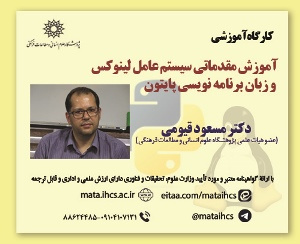تبیین جامعه شناختی رفتارهای زیست محیطی جوانان شهر تهران (مقاله علمی وزارت علوم)
درجه علمی: نشریه علمی (وزارت علوم)
آرشیو
چکیده
در حال حاضر مسائل زیست محیطی، چالشی فراگیر و جهانی قلمداد می شود. رفتارهای زیست محیطی انسان به عنوان یکی از مهم ترین عوامل مؤثر بر محیط زیست، مدنظر بسیاری از اندیشمندان، پژوهشگران و محیط گرایان قرار گرفته است. در همین راستا جامعه شناسان تحلیل و بررسی مسائل زیست محیطی را نیازمند مطالعات جامعه شناختی و راه حل های اجتماعی می دانند. پژوهش حاضر در چارچوب رویکرد کمی و با هدف تبیین جامعه شناختی رفتارهای زیست محیطی جوانان شهر تهران انجام شد. روش استفاده شده در این پژوهش، پیمایش و ابزار گردآوری داده ها پرسشنامه بود. جامعه آماری پژوهش، جوانان 18-35 ساله شهر تهران بودند که 453 نفر از آن ها در مناطق مختلف شهر و با مدنظر قراردادن وضعیت توسعه یافتگی این مناطق به عنوان نمونه انتخاب شده و با استفاده از شیوه نمونه گیری سهمیه ای مطالعه شدند. تجزیه و تحلیل داده ها در دو سطح آمار توصیفی و استنباطی انجام شد. یافته های توصیفی پژوهش نشان دهنده وضعیت نسبتاً مطلوب رفتار زیست محیطی در بین افراد مطالعه شده است. یافته های استنباطی پژوهش بیانگر این است که متغیرهای مستقل پژوهش (طبقه اجتماعی، سرمایه فرهنگی، سطح دین داری، مصرف گرایی و آگاهی زیست محیطی) درمجموع 26درصد توان تبیین واریانس متغیر رفتار زیست محیطی را در بین افراد مطالعه شده دارند. اثر همه متغیرهای مستقل به جز متغیر سرمایه فرهنگی بر متغیر رفتار مخرب زیست محیطی به لحاظ آماری معنادار است. شایان ذکر است اثر متغیرهای طبقه اجتماعی و آگاهی زیست محیطی بر رفتار مخرب زیست محیطی معکوس و اثر متغیرهای مصرف گرایی و سطح دین داری بر این متغیر مستقیم است. متغیر طبقه اجتماعی نیز به صورت غیرمستقیم و با میانجی گری متغیر دین داری بر رفتار مخرب زیست محیطی اثر معکوس دارد.Sociological Explanation of Environmental Behaviors of the Youth in Tehran
Nowadays, environmental issues are considered a general and global challenge. Human environmental behavior as one of most important factors influencing the environment has attracted the attention of many philosophers, researchers, and environmentalists. Furthermore, sociologists believe that analysis of environmental issues require sociological studies and social solutions. This quantitative study was done to explain the environmental behaviors of young individuals of Tehran. The method used in this research is survey and questionnaire was used as the tool to collect data. Statistical population includes young individuals of Tehran in the range of 18-35 years old among which 453 people, from different districts of Tehran and considering the level of development of these districts, were selected. Quota sampling method was used. Data analysis was done in descriptive and inferential levels. Descriptive findings of research indicated relatively desirable conditions of environmental behavior among the participants under study. Inferential findings indicate that independent variables of research (social class, cultural capital, level of religiosity, consumerism, and environmental awareness) totally (26 percent) have the ability to explain the variable variance of environmental behavior among participants. The effect of all independent variables except cultural capital on environmental destructive behavior is statistically significant. Moreover, the effect of social class and environmental awareness on environmental destructive behavior is inverse and the effect of consumerism and level of generosity variables on this variable is direct. Social class variable indirectly, and mediated by level of generosity variable, influences environmental destructive behavior inversely.





